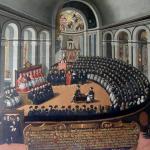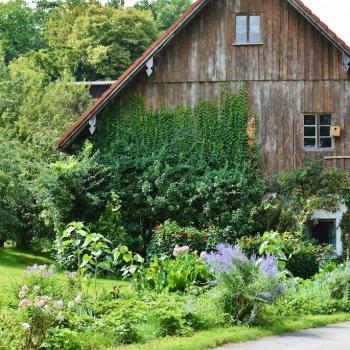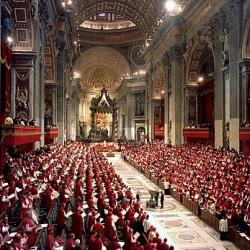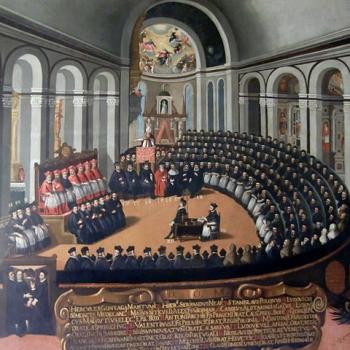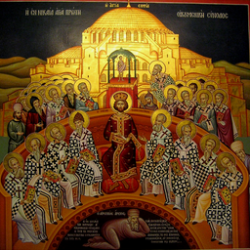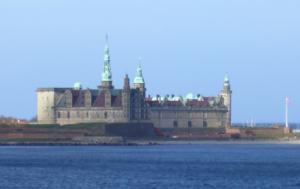
I just finished reading John Updike’s novel Gertrude and Claudius. I had never read an Updike novel before. I knew he was famous for novels about the torrid sexual lives of 20th-century middle-class Americans. So here’s a novel about the torrid sexual lives of upper-class medieval Danish people. It also happens to be a prequel to Hamlet.
I found the beginning of the novel a bit off-putting–the style seemed stilted and awkward and the analysis of everyone’s motivations and thoughts rather labored and obvious. But it grew on me as it went on. Some of the descriptions of nature and the changing seasons are absolutely gorgeous, and the characters–mostly Gertrude, Claudius, and Polonius–are fleshed out beautifully in ways that more or less support my own reading of the play but also enrich my understanding of it.
I was given this book several years ago by one of my cast members (Gertrude, in fact) when I directed Hamlet for our local community theater, but I’ve only now gotten around to reading it. So it’s a play I’ve thought about a lot and I’m happy to see that many of Updike’s thoughts correspond with my own. His account of Claudius’ motivations for his actions in Act 1, Scene 2 (with which the novel ends) is pretty much what I came to independently. That was one of the most fun and challenging scenes to stage and Updike sets it up beautifully. It’s a melancholy and ironic way to end the novel.
There’s some awkwardness about the way the story’s setting seems to shift from near-Viking times to the Renaissance in the course of a few decades. Not entirely unlike what T. H. White does in _Once and Future King_ though he’s more explicit and fantastical about it. I think Updike means this to be symbolic and on the whole it works.
But what matters most, for the book as a novel, is that Gertrude and Claudius and their hapless sidekick Polonius come alive as people–deeply flawed but sympathetic people who make bad decisions for understandable human reasons. It would be an interesting piece of historical fiction in its own right, but as a kind of midrash on Shakespeare it becomes much more than that.
Image: Elsinore Castle, Debora Weber-Wulff, CC BY-SA 3.0 <http://creativecommons.org/licenses/by-sa/3.0/>, via Wikimedia Commons


